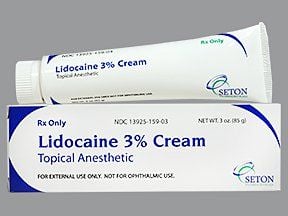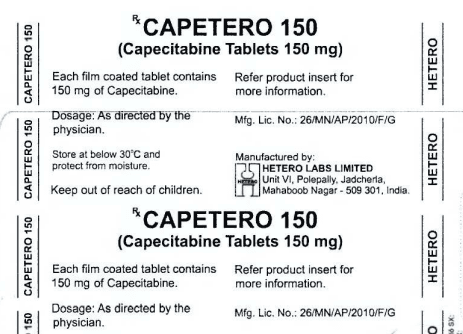This is an automatically translated article.
Post by Master, Doctor Mai Vien Phuong - Gastroenterologist - Department of Medical Examination & Internal Medicine - Vinmec Central Park International General Hospital.
Doctors note that colorectal cancer incidence is increasing in young people, so early screening is important. Healthy adults should have a regular colorectal cancer screening plan starting at age 50 and continuing until age 75.
1. What is early cancer screening?
Early cancer screening is important in detecting malignancies when they first appear in order to prolong life and reduce mortality for patients.
Early cancer screening is measures and procedures performed on the patient's body to detect malignant cells early. Thereby, helping to increase the chances of successful cancer treatment.
Early cancer screening is called early when the cancer organization is small and has not metastasized or invaded the surrounding organs, has not shown outward signs or has only mild symptoms. At this time, only removing the cancer in situ is considered as successful treatment about 80%.
Therefore, early cancer screening is extremely important for patients. This screening should be done regularly and periodically every year. Especially if you have a high risk of cancer, you should not ignore this.
2. New guidelines issued for colorectal cancer tests
New guidelines have been issued for colorectal cancer testing for adults aged 50 to 75 years. The American College of Physicians recommends stool testing every 2 years and may add a flexible colonoscopy or sigmoidoscopy every decade.
Doctors note that colorectal cancer incidence is increasing in young people, so early screening is important. Healthy adults should have a regular colorectal cancer screening plan starting at age 50 and continuing until age 75.
People with a higher risk or family history of the disease should talk to their doctor and get tested more often than that, the guidelines state. In addition, experts suggest several screening options. These include fecal immunohistochemistry (FIT) or highly sensitive guaiac-based fecal occult blood test (gFOBT) every 2 years as well as colonoscopy every decade or sigmoidoscopy 10 once a year with FIT every 2 years. These colonoscopy alternatives allow people to bypass some of the discomforts of more invasive procedures while still having many benefits.
3. Early screening is better According to Richard Wender, director of cancer control at the American Cancer Society (ACS), even age 50 may be older than the optimal age to start colon cancer screening. rectum.
The authors recommend that adults at average risk begin screening for colorectal cancer at age 45 based on their review of the study and its increasing prevalence and early onset of colorectal cancer in recent years.
People born recently have a higher risk of developing colorectal cancer. This effect has been around for several decades and is growing every year. The more recent a person was born, the higher the risk of colorectal cancer before the age of 50.
While the incidence of this cancer is decreasing in people over 55 years old due to screening and removal of polyps, the incidence is actually increasing in people aged 50 to 54 years. This happens in part because only half of adults aged 50 to 54 are examined.

Michael Chen says: “Drinking a medical solution to completely detox can be an uncomfortable experience when you constantly have to wake up to go to the bathroom and can't sleep. Others do not like the idea of inserting a medical instrument into their intestines (even if they are comfortably sedated) and the possibility of complications such as perforation.”
Emi Gal, chief executive officer of Ezra "There is evidence that MRI is the ideal imaging modality for many organs. Take the prostate gland for example. A January 2017 study showed that MRI can detect 90 percent of cases," said cases of prostate cancer, while the gold-standard blood tests for a marker called prostate-specific antigen, are only about 21% accurate, according to a 2012 review.”
Beyond In addition, home stool sample tests can be just as effective in detecting cancer as colonoscopy, that said, if a person tests positive, they will still need a full colonoscopy. According to Renee Williams, MD, a gastroenterologist and an associate professor of medicine at NYU Langone Health in New York
5. How to reduce risk However, either method is convenient. Available and available to you, it is important to have regular colorectal cancer screening, beginning at age 50.
“Screencing makes a difference because through screening you can detect precancerous lesions (i.e. polyps) and remove them to prevent cancer from growing and detect cancer in at an earlier stage so they can be treated more easily with a higher chance of cure,” says Daniel I. Chu, MD, associate professor of digestive surgery at the University of Alabama at Birmingham.
Building evidence suggests that your diet plays a central role in cancer development. A diet rich in fiber, low in red meat, and low in processed meat (sausages...) may help reduce the risk of developing colorectal cancer. However, the best lifestyle habits are to eat healthy as above, exercise, avoid smoking and avoid excessive alcohol consumption. Doing all of these things can also reduce your risk of many other diseases.
Unfortunately, there are uncontrollable risk factors, including inflammatory bowel disease, genetic predisposition, and family history. In these cases, it's even more important to maintain a screening schedule.
So even if you stick to all those practices, don't skip the checkups, says Andrew Rosenstein, MD, a gastroenterologist at the University of Maryland St. Joseph said.
In summary, colorectal cancer is the third leading cause of cancer death in the United States. One of the most effective tools for diagnosing colorectal cancer is colonoscopy. Colonoscopy is one of those procedures that everyone dreads, but it is the most effective way to prevent colon cancer. If you're worried about the procedure being painful, you can rest easy knowing that endoscopic anesthesia will help eliminate discomfort as well as pain.
Currently, Vinmec International General Hospital has a Colorectal Cancer Screening Package that combines clinical and paraclinical examination to bring about the most accurate results possible. Colon cancer screening and early detection package includes all the necessary tests to help detect colon cancer early even when there are no symptoms.
When registering for the Colon Cancer Screening and Early Detection Package, customers will receive:
Gastrointestinal CK examination (with appointment) Diagnostic colonoscopy with flexible bronchoscope (with NBI machine, with anesthesia) Total colonoscopy with NBI endoscope with anesthesia (Drug) Total colonoscopy with NBI endoscope, with anesthesia (VTTH) Routine histopathological examination fixed, transferred, cast, resected , staining... biopsies (lower gastrointestinal tract through colonoscopy, rectum).
Please dial HOTLINE for more information or register for an appointment HERE. Download MyVinmec app to make appointments faster and to manage your bookings easily.
References:Colorectal cancer statistics. (2019). cdc.gov/cancer/colorectal/statistics/index.htm Screening helps prevent colorectal cancer. (n.d.). mayoclinic.org/tests-procedures/colonoscopy-fl Sonnenberg A. (2016). Sedation in colonoscopy. ncbi.nlm.nih.gov/pmc/articles/PMC4973564/ Torborg L. (2018). Mayo Clinic Q and A: Pain management during colonoscopy. newsnetwork.mayoclinic.org/discussion/mayo-clinic-q-and-a-pain-management-during-colonoscopy/













